Organizers, Lecturers, and Learning Assistants
Click below for information about the UQ-bio Summer School Organizers, Lecturers, and Learning Assistants from previous years
This is a list in progress.
Interested in being a UQ-bio Learning Assistant, Lecturer, or Invited Speaker? The UQ-BIO program seeks to provide unique opportunities for junior scientists (e.g., graduate students and postdocs) to gain leadership experience through participation as an onsite or online mentor for course projects. The UQ-Bio program strongly encourages participation from a diverse group of early and mid-career scientists, including participants from historically marginalized groups and those who have taken non-traditional career paths. If you want to participate in the Undergraduate Quantitative Biology Summer School, please get in touch with the organizers.
- Dr. Luis U. Aguilera, Chemical and Biological Engineering, Colorado State University, Fort Collins, CO, USA
- Dr. Zachary R Fox, Oak Ridge National Laboratory, Oak Ridge, TN, USA
- Prof. Brian Munsky, Chemical and Biological Engineering, Colorado State University, Fort Collins, CO, USA
- Dr. Luis Aguilera, Research Scientist, Chemical and Biological Engineering, Colorado State University
- Prof. Ania Baetica, Assistant Prof., Mechanical Engineering, Drexel University
- Joshua Cook, M.S. Student, Biomedical Engineering, Colorado State University
- Prof. Keisha Cook, Assistant Prof., Mathematical and Statistical Sciences, Clemson University
- Dr. Zachary Fox, Research Scientist, Oak Ridge National Laboratory
- Prof. Soham Ghosh, Assistant Prof., Mechanical Engineering, Colorado State University
- Connor King, Ph.D. Student, Cellular and Molecular Biology, Colorado State University
- Michael May, Ph.D. Student, Biomedical Engineering, Colorado State University
- Dr. Hanieh Mazloom-Faarsibaf, Bioinformatics, UT Southwestern Medical Center
- Prof. Megan McClean, Biomedical Engineering, University of Wisconsin, Madison
- Dr. Tatsuya Morisaki, Research Scientist, Colorado State University
- Prof. Brian Munsky, Chemical and Biological Engineering, Colorado State University, Fort Collins, CO (Contact Organizer)
- Prof. Andrew Mugler, Physics, University of Pittsburgh
- Prof. Philip Nelson, Physics and Astronomy, University of Pennsylvania
- Kaan Ocal, Ph.D. Student, University of Edinburgh
- Ana Carolina Pádua, Postdoc, Champalimaud Center for the Unknown (Lisbon, Portugal)
- William Raymond, Ph.D. Student, Biomedical Engineering, Colorado State University
- Eric Ron, Ph.D. Student, Biomedical Engineering, Colorado State University
- Prof. Doug Shepherd, Physics, Arizona State University
- Lisa Weber, Ph.D. Student, Chemical and Biological Engineering, Colorado State University
- Prof. Tom Yankeelov, Center for Computational Oncology, University of Texas at Austin
For more information about each organizer, lecturer, invited speaker, project manager, mentor, or learning assistant, please see below.
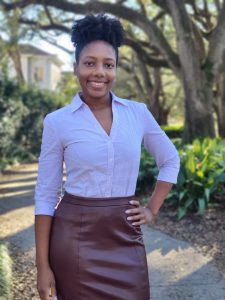
Dr. Keisha Cook, originally from Marietta, GA, is an Assistant Professor in the School of Mathematical and Statistical Sciences at Clemson University. She received her PhD in computational mathematics from The University of Alabama and completed a postdoctoral research position at Tulane University. She is a member of the Southeast Center for Mathematics and Biology where she collaborates with a team of mathematicians and experimentalists. Their research group studies intracellular movement in human lung cells. While the experimentalists capture data using various imaging techniques, Dr. Cook simulates intracellular processes using mathematical models and develops methodologies to statistically analyze the underlying mechanisms of the cell cytoplasm. The mathematical analysis is used by experimentalists to provide a deeper understanding of intracellular processes and introduce innovative ways to categorize movement. In addition to research, she teaches courses in probability and stochastic processes.
Outside of teaching and research, she is an organizer for the Math For All in New Orleans Conference (a conference focusing on highlighting underrepresented minorities in mathematics). She strives to support and mentor underrepresented students, postdocs, and researchers throughout her career in academia. She has a keen interest in increasing the number of women and underrepresented students in STEM.
Website: https://drcookdoesmath.weebly.com/
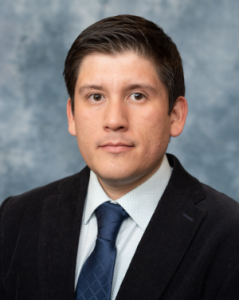
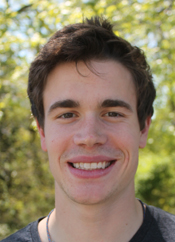
Zachary Fox received his doctorate in Biomedical Engineering from Colorado State University in 2019 where he developed new methods to integrate single-cell microscopy data and stochastic models of gene expression. These tools include new approaches to infer model parameters from data and use stochastic models to design more informative experiments. Zach then attended the Institut Pasteur in Paris, France, where he did his postdoc in microscopy automation and optogenetic control of gene expression in synthetically engineered yeast using stochastic models. He worked with Gregory Batt and Jakob Ruess. He is now working on a secondary postdoc at the Center for Nonlinear Studies and Computer, Computational, and Statistical Science at Los Alamos National Lab, with Dr. Yen Ting Lin and Dr. Anatoly Zlotnik.
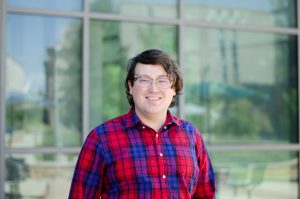
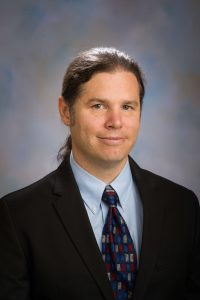
Dr. Munsky joined the Department of Chemical and Biological Engineering and the School of Biomedical Engineering as an assistant professor in January of 2014. He received B.S. and M.S. degrees in Aerospace Engineering from the Pennsylvania State University in 2000 and 2002, respectively, and his Ph.D. in Mechanical Engineering from the University of California at Santa Barbara in 2008. Following his graduate studies, Dr. Munsky worked at the Los Alamos National Laboratory — as a Director’s Postdoctoral Fellow (2008-2010), as a Richard P. Feynman Distinguished Postdoctoral Fellow in Theory and Computing (2010-2013), and as a Staff Scientist (2013). Dr. Munsky is best known for his discovery of Finite State Projection algorithm, which has enabled the efficient study of probability distribution dynamics for stochastic gene regulatory networks. Dr. Munsky’s research interests at CSU are in the integration of stochastic models with single-cell experiments to identify predictive models of gene regulatory systems, and his research is actively funded by the W M Keck Foundation, the NIGMS (MIRA), and the NSF (CAREER). Dr. Munsky is very excited about the future of quantitative biology, and he would love to talk about this with you!
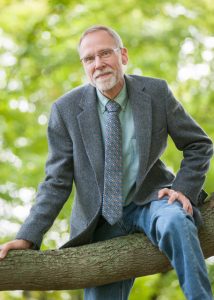
Philip Nelson is Professor of Physics at University of Pennsylvania. He is the author most recently of Physical Models of Living Systems, Second Edition and past Chair of American Physical Society’s Division of Biological Physics.
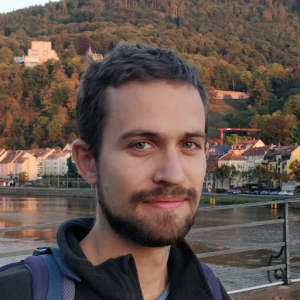
Kaan is a PhD student at the University of Edinburgh, Scotland working with Ramon Grima and Guido Sanguinetti. Coming from a pure maths background his research is in modelling and inference for stochastic biochemical systems, focusing on the Chemical Master Equation and its variants. He is interested in using statistical methods to connect mathematical models with biological data, with a focus on Bayesian statistics. In his free time he is an avid hiker with a love for music and good books.
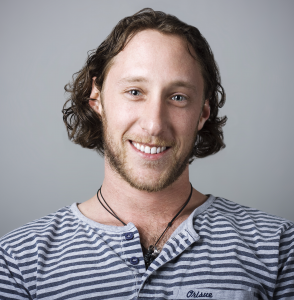
Eric received his undergraduate degree in biochemistry from Colorado State University in 2013. He then worked as an analytical chemist for two years in industry before working as product development lead and cofounder of a start-up company until 2018. Currently, he is working on his Master’s Degree and is interested in single-cell microscopy and the integration of stochastic models with transcription and translation dynamics. In his current work he is helping with the optimization of smFISH experiments and assisting with the automation of image processing.
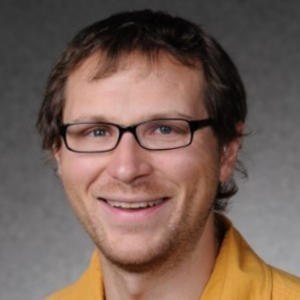
Douglas Shepherd was born in Albuquerque, NM and went to the University of California Santa Barbara as a undergraduate where he studied physics. After a break from academia, he pursued his doctorate in single-molecule physics at Colorado State University under the direction of Profs. Alan Van Orden (Chemistry) and Martin Gelfand (Physics). He went onto a postdoctoral fellowship in the Center for Integrated Nanotechnologies (CINT) and Center for Nonlinear Studies (CNLS) at Los Alamos National Laboratory. Working with Drs. James Werner (CINT) and Brian Munsky (CNLS), he built new tools to measure and model gene regulation in pathogenic bacteria.
Shepherd directs the Quantitative Imaging and Inference (QI2) lab, which he formed at the University of Colorado Denver Anschutz Medical Campus in 2013. In 2019, Shepherd and the QI2 lab relocated to the Center for Biological Physics and Department of Physics at ASU. The QI2 lab develops, adapts, and uses high-throughput fluorescence imaging methods and statistical inference tools to build a quantitative understanding of how cells organize into tissue and organs. The QI2 lab is a contributing member of the Chan Zuckerberg Initiative Human Cell Atlas, with a particular interest in highly-multiplexed single-molecule mapping of gene expression to infer cell type throughout the human lung.
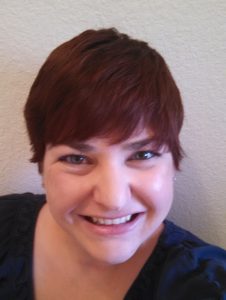 Lisa Weber is currently an Instructor and PhD Candidate in Chemical Engineering at Colorado State University. She received a BS in Chemical Engineering from the University of Colorado-Boulder, an MS in Mechanical Engineering with a biological emphasis from the University of Denver, and has engineering experience in multiple industries (Oil and Gas, Pharmaceuticals, and Aerospace). Her research involves performing computational modeling of various biological processes, including aspects of gene expression and DNA/Oligonucleotide binding interactions in relation to multiple experimental variables, integrating computational methods with experimental data. She also has an interest in helping engineering students foster more inclusive professional identities by (performing research on) implementing and teaching implicit bias, inclusion, and diversity-related topics to undergraduate engineering students. In addition, she was a Graduate Teaching Fellow from 2017-2019, and she is currently the Instructor for CBE 160: Introduction to MATLAB for Chemical and Biological Engineers (from 2018-Present).
Lisa Weber is currently an Instructor and PhD Candidate in Chemical Engineering at Colorado State University. She received a BS in Chemical Engineering from the University of Colorado-Boulder, an MS in Mechanical Engineering with a biological emphasis from the University of Denver, and has engineering experience in multiple industries (Oil and Gas, Pharmaceuticals, and Aerospace). Her research involves performing computational modeling of various biological processes, including aspects of gene expression and DNA/Oligonucleotide binding interactions in relation to multiple experimental variables, integrating computational methods with experimental data. She also has an interest in helping engineering students foster more inclusive professional identities by (performing research on) implementing and teaching implicit bias, inclusion, and diversity-related topics to undergraduate engineering students. In addition, she was a Graduate Teaching Fellow from 2017-2019, and she is currently the Instructor for CBE 160: Introduction to MATLAB for Chemical and Biological Engineers (from 2018-Present).
To keep up to date on UQ-BIO activities, please Join our Slack Channel by Clicking Here.